Category: Palliative Care
Articles about palliative care including the differences between palliative care and hospice care which is palliative care at end-of-life.
Articles about palliative care including the differences between palliative care and hospice care which is palliative care at end-of-life.

Caring for a terminally ill loved one at home is an incredibly challenging and emotional journey for family caregivers. This guide acknowledges the struggles you may face and offers compassionate solutions. It explores valuable resources, such as end-of-life doulas, PACE programs, and professional home care services, all designed to help ease your burden and provide support during this difficult time. You are not alone in this experience; there are ways to find relief and comfort as you navigate these profound challenges.

Legacy projects offer powerful pathways to closure for both patients facing end-of-life and their families. From memory quilts to ethical wills, these meaningful activities transform difficult goodbyes into lasting connections, reduce anxiety, and provide comfort during grief while preserving precious memories.
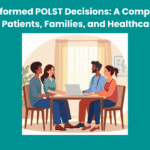
This comprehensive guide helps patients, families, and healthcare professionals confidently navigate POLST decisions. Learn the essential steps, understand your options, and ensure your end-of-life care wishes are honored through proper planning and communication.
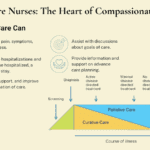
Palliative care nurses serve as the cornerstone of compassionate healthcare, providing comfort and support to patients with serious illnesses at any stage—not just at end of life. These dedicated professionals bridge the gap between medical treatment and holistic care, ensuring patients and families receive comprehensive support through their healthcare journey.

A new Age-Friendly Insights Poll reveals that adults 50 and older support palliative care once they understand what it offers. This article explores the poll findings, discusses the importance of palliative care education, and highlights key preferences of older adults regarding serious illness planning and care.
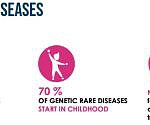
Explore the crucial role of palliative care in supporting patients with rare diseases. Learn how this specialized approach can enhance quality of life, manage complex symptoms, and provide essential support for patients and caregivers.

Mild cognitive impairment (MCI) is a condition characterized by cognitive decline that is more significant than expected for an individual of age but not severe enough to interfere significantly with daily life. This article explores MCI's symptoms, diagnosis, and potential progression to dementia, offering insights into prevention and management strategies.
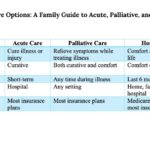
Discover when and how acute, palliative, and hospice care can help patients and families navigate serious illness. This comprehensive guide explains the differences between care types, eligibility requirements, and how to choose the correct option.
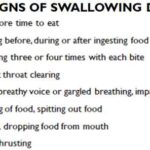
Learn about swallowing problems in dementia patients, including symptoms, risks, and management strategies for caregivers and healthcare professionals.
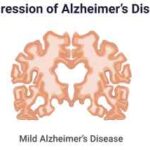
Delve into the complexities of Alzheimer's disease, the most common form of dementia. This article examines its causes, symptoms, diagnosis, and treatment options while discussing the challenges patients and caregivers face. Learn about ongoing research and potential breakthroughs in the fight against this devastating neurological disorder.

Delve into the world of dementia with our comprehensive guide. Understand its progression, learn about risk factors and prevention, explore diagnosis and treatment options, and discover coping strategies for cognitive decline. Empower yourself with the knowledge to navigate the challenges of dementia.
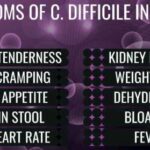
Explore comprehensive strategies for preventing, detecting, and treating Clostridium difficile infections in the elderly. Understand the risk factors, symptoms, and effective treatments to improve patient care and outcomes.
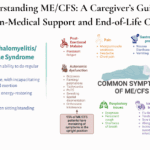
This comprehensive guide helps caregivers, families, and end-of-life professionals understand ME/CFS, providing practical tools for non-medical support. Learn about the disease trajectory from onset to end-of-life care, including when palliative and hospice care should be considered for optimal patient comfort and well-being.
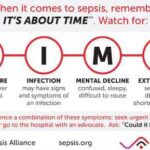
This comprehensive article explores bacteremia and sepsis in the elderly, examining prevention, early detection, and treatment. Understand the unique challenges and effective strategies for managing these conditions in older adults.
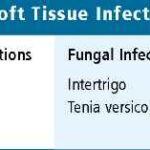
Discover comprehensive strategies for preventing, detecting, and treating skin and soft tissue infections in the elderly. This guide covers critical aspects, including hygiene practices, early signs of infection, and effective treatment options.

Learn essential strategies for preventing, detecting, and treating respiratory infections, such as pneumonia and influenza, in older adults. This comprehensive guide offers valuable insights for caregivers and healthcare professionals working with the geriatric population.
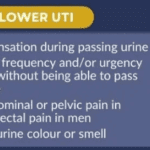
This comprehensive guide explores urinary tract infections (UTIs) in the elderly, covering unique challenges, prevention strategies, early detection methods, diagnosis, treatment approaches, and long-term management to ensure better health outcomes for older adults.
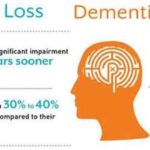
Recent studies have revealed a surprising link between hearing loss and dementia. This article examines the scientific basis of this connection, investigating how hearing impairment may contribute to cognitive decline. Discover practical steps for maintaining hearing health and potentially lowering the risk of dementia, along with cutting-edge research in this critical area of study.
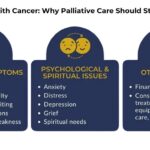
Discover why combining palliative care with cancer treatment from day one can transform your cancer journey. This guide explains how early palliative care provides expert symptom management, emotional support, and better outcomes while maintaining hope and enhancing quality of life.
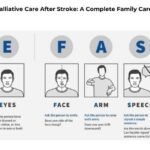
Discover how palliative care can transform the stroke recovery journey for patients and their families. This comprehensive guide explains the benefits, services available, and steps to access palliative care support throughout the United States.
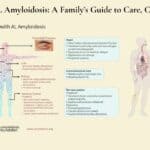
AL amyloidosis is an uncommon yet severe condition that impacts various organs. This detailed guide provides essential information for patients and their families regarding symptoms, disease progression, treatment options, and the timing of considering hospice care for their loved one.
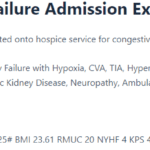
Learn about the essential elements of a comprehensive hospice admission note. This guide helps registered nurses document crucial patient information, from diagnoses to physical assessments, ensuring the delivery of quality end-of-life care and proper eligibility documentation.

Discover how hospitals are crucial in helping families place dementia patients in appropriate care settings. This article explores various care options, discusses challenges in placement decisions, and provides evidence-based strategies for effective hospital-based care coordination to ensure the best possible outcomes for patients and their loved ones.

The FY2026 Hospice Proposed Rule (CMS-1835-P) introduces critical payment rate adjustments and wage index modifications that will reshape hospice operations. This comprehensive analysis examines the financial implications for providers and the direct impact on clinical managers and frontline staff delivering end-of-life care.